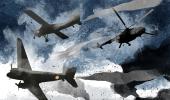'They asked me if I was a devout Muslim and if I could recite the Kalma.'
Flying Officer Jawahar Lal Bhargava knew his game was up.
'They threatened me with dire consequences if I didn't tell the truth.'
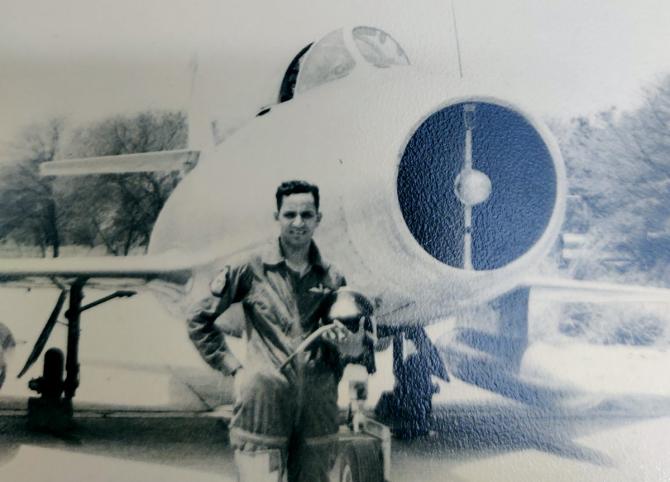
Fifty years ago.
With the war raging between the two countries, the India-Pakistan border was one of the most dangerous parts of the world.
Jawahar Lal Bhargava, then a young Flying Officer and part of the 225 Squadron, was flying his very sortie over enemy territory.
An unexpected attack from the Pakistani side badly damaged his aircraft and he was forced to eject.
In part III of this fascinating tale, he tells IAF Veteran Air Commodore Nitin Sathe what happened next.
- Part I: Captured in Pakistan
- Part II: 'I have been hit'
Surprisingly, in the initial hours that followed the crash, Flying Officer Jawahar Lal Bhargava did not see a single human being approach the crash site or come looking for him.
"At about 1230 PST, I heard some conversation at a distance and realised that someone was approaching. Picking up my survival pack with its reduced items, I started to run on an easterly heading, leaving footprints in the sand, for about a kilometre."
It was difficult to run in the tight and heavy G-suit. Besides, the flying overalls and the suit would be a dead giveaway if he was caught. Stopping to catch his breath, Bhargava removed them and threw them into some hedges close by.
He was in his civvies now, which pilots wore under their overalls during missions. He had some Pakistani currency, a few bottles of water and a knife for company.
(In operational missions into enemy territory, pilots wear civilian clothes under their overalls -- a salwar kameez in this case -- so that they can merge with the local population in case they crash in enemy territory. Pilots also carry foreign currency that can be used if required to save themselves.)
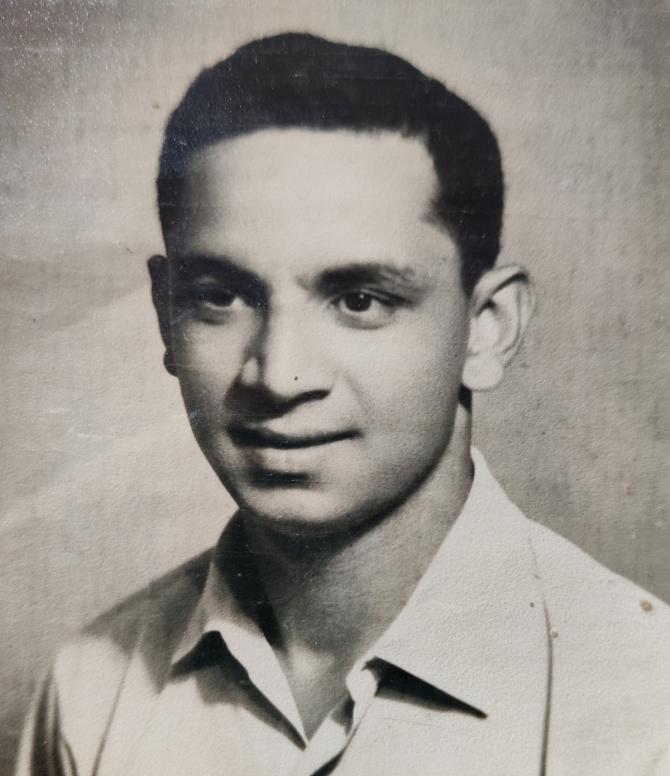
In hindsight, Bhargava feels that the men he heard could have well been Indian soldiers. Had he run away from safety?
The rescue party sent by the Indian Army recovered the buried parachute and ejection seat near the crash site. They also recovered the overalls and G-suit which were sent back to his squadron.
"At least, the guys back home knew I had survived the crash!" says Bhargava Sir.
Later, Flight Lieutenant Mulla Feroze narrated his part of the story when they met up in jail. Mulla Feroze Sir and Captain Dastur were on duty as Forward Air Controller and Ground Liaison Officer in the area around Naya Chor (Sindh, Pakistan). They both fell into Pakistani hands a few hours later.
Mulla Feroze Sir told Bhargava Sir that he was very close to the crash site and had seen the aircraft with its rear end in flames. He hadn't, however, seen the ejection and wasn't sure if Bhargava Sir had survived.
Both Mulla Feroze Sir and Dastur Sir convinced the local army unit's commanding officer to send a few men to search for the downed pilot.
"In all probability, these were the men who recovered my parachute, etc, and sent it to my unit. When I got back, my CO showed me my parachute, which he had kept with himself, while my ejection seat was lying in the squadron hangar."
Disoriented and dehydrated, Bhargava Sir was about to give up when he saw a village a few kilometres away.
When he reached the few huts at the perimeter, he met an old man.
'I am Flight Lieutenant Mansoor Ali,' Bhargava Sir told him. 'I have just survived a crash. I need water to drink!'
The old man indicated to a tank of water used by cattle and Bhargava Sir quenched his thirst to his heart's content.
He also filled up his four bottles for later use.
'Is that Bhitala?' asked Bhargava Sir, pointing to the village and warming up to the old man.
'No, no! That is Pirani Ki Paar!' said the surprised man.
Bhargava Sir realised how wrong his mental reckoning had been; he was well south of where he had thought he was.
'I gave Rs 20 to the old man and requested him not to tell anyone that he had seen me.'
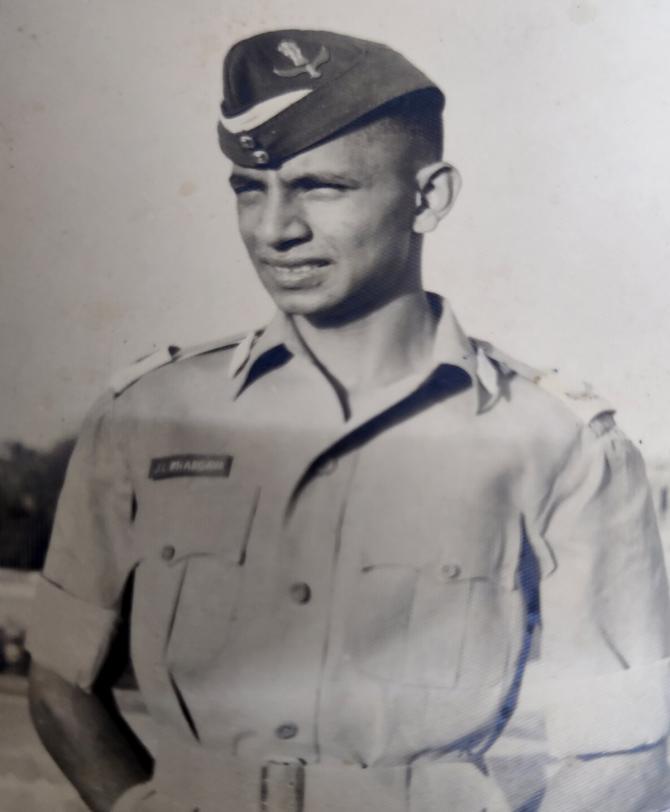
Bhargava Sir now began his journey home on a new heading towards the border, hoping to spot the railway line that would help him navigate the fastest route towards home and safety.
At about 1730 hours, while going around some dunes, he saw an Mi-4 helicopter hovering a little distance away, perhaps trying to locate him. He waved and shouted, but was not seen. The chopper soon flew eastwards into the deepening dusk.
Exhausted by all that he had experienced, Bhargava Sir decided to spend the night in a man-made eight-foot trench. But, in a little while, he was rudely awakened from his tired slumber by three men staring down at him, torches in hand.
'Who are you and what are you doing here?' A volley of questions followed.
'I am Flight Lieutenant Mansoor Ali of the Pakistani Air Force and I was shot down by the Indians near Bhitala village this morning.'
'Arre! You are very near the Indians here; come along with us and we shall get you to safety. Come! Walk with us to our village...'
'Is there any police station near your village?' asked Bhargava Sir as they walked. He was relieved when he was told that there was none in the vicinity.
'Kitni door hai border yahan se? (How far are we from the border?)?' Bhargava Sir enquired, thinking of how he was going to give them the slip.
'Cheh se saath kos (Six to seven kos; a kos is equal to 1.2 miles or 1.8 km),' came the answer.
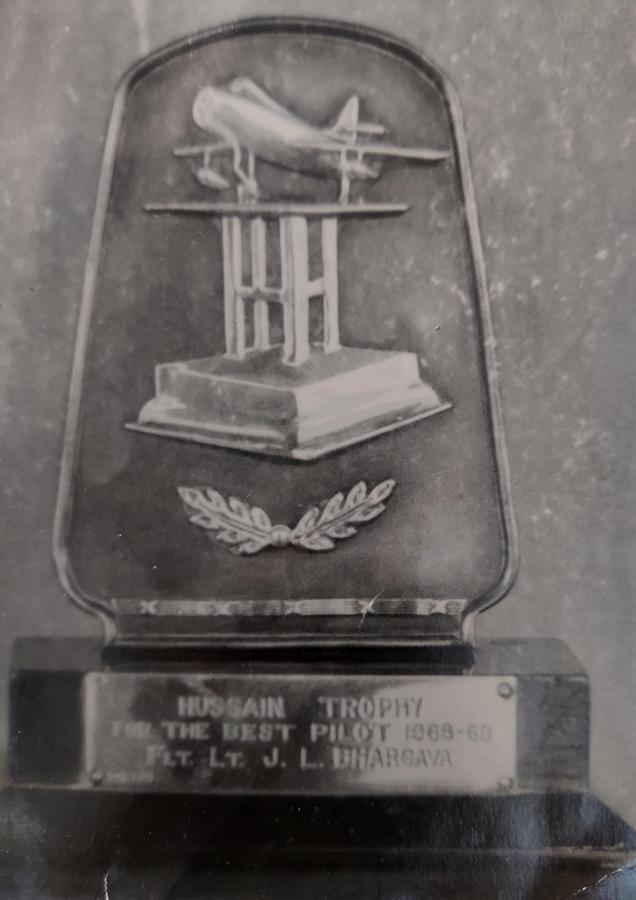
At the village, when Bhargava Sir asked for a camel ride to Bhitala, the villagers told him the town had been taken over by the Indians the same day.
'No, no!' Bhargava Sir said, trying to outwit them. 'We have fought hard and taken back the town.'
But the villagers didn't seem convinced.
'I even gave them Rs 200 as the fee for hiring the camel,' he says.
The village school headmaster suspected something fishy about Bhargava Sir's story and sent someone to ask the Pakistani Rangers to come and verify the 'outsider'.
While they waited, the first of the informal interrogations started.
The headmaster wanted to know where Bhargava Sir was from, if he could provide his address, etc.
'I am from Rawalpindi, Mall Road,' Bhargava Sir answered confidently.
He was told that the Rangers were coming to get him in three hours.
Bhargava Sir sat on the charpoy; the villagers crowded around him. He wanted to get away by 8 pm, well before the Rangers arrived. He requested for some tea.
As he sipped the sweet brew, he thought about his next move.
He even gave away his few belongings to the children hovering around in a bid to gain their confidence. As it neared 8 pm, he asked for another cup of tea.
Unfortunately, the Rangers reached the village just was the second cup of tea was being served and took charge of the situation.
'Show me your watch,' said a Ranger, taking Bhargava Sir's hand and looking at the time.
"Thankfully, since I had already changed the time to PST, I managed to earn their confidence even before their interrogation really started."
Being questioned was going to be the pattern for the next few days.
"They asked me if I was a devout Muslim and if I could recite the Kalma."
Bhargava Sir could not even repeat the verses after they were recited aloud to him by one of the Rangers. He felt the danger rising and knew his game was up.
"They threatened me with dire consequences if I didn't tell the truth."
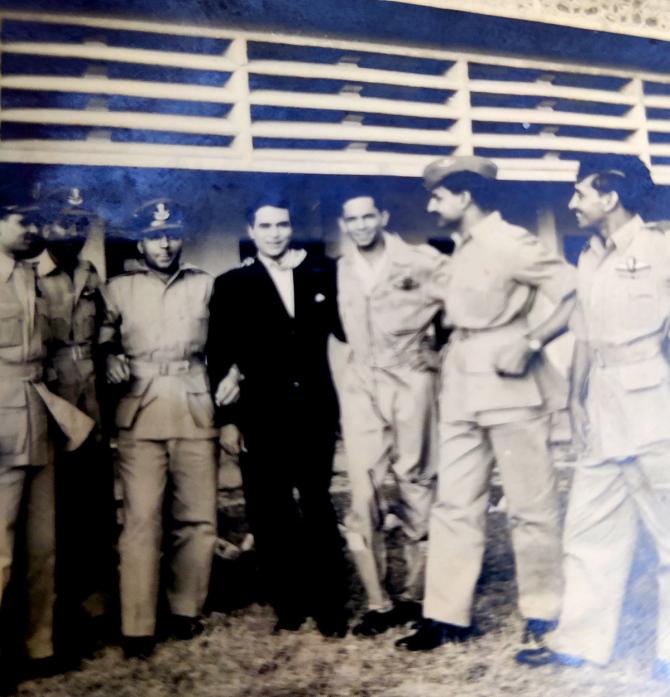
'I am 7209, Flight Lieutenant Jawahar Lal Bhargava of the Indian Air Force," he said, giving his service number. "You can kill me if you want.'
'Why are you in civil clothes?' asked a Ranger.
'I threw away my flying overalls after I landed on ground to save myself,' replied Bhargava Sir.
"I thought the villagers would lynch me before the Rangers took me away," says Bhargava Sir. "Thankfully, they were nice. The village headman said, 'Arre aap hamare mehmaan hai! Agar hume pata hota ki aap us paar se aaye hain, hum aapki khatirdaari karte(If we knew you were our guest from the other side, we would have looked after you)!'
"This raised my morale and I accepted their invitation to a meal.
"'Kya aap bada/chhota khate hain? (Do you eat buffalo/cow/goat meat?)' I was asked."
"I replied in the negative and told them that I could eat chicken."
Immediately, a meal with chicken was arranged, which all of them relished before the Rangers and their prisoner left on camels.
While they ate, one of the villagers approached Bhargava. 'Do you want to write a letter to your begum? I visit Barmer (in Rajasthan) often and will post it for you.'
"I quickly scribbled a note to my wife which read something like this, 'My dear... I am very sorry to disappoint you all. I am now in Pakistan and hopefully will be declared a POW tomorrow. Love to everybody. I am fit and fine and hope to see you soon.'"
He addressed the envelope to '225 Squadron, IAF, C/O 56 APO.'
The letter was never delivered.
Air Commodore Nitin Sathe retired from the Indian Air Force in February 2020 after a distinguished 35 year career.
The author of three books, you can read Air Commodore Sathe's earlier articles here.
Feature Presentation: Rajesh Alva/Rediff.com

